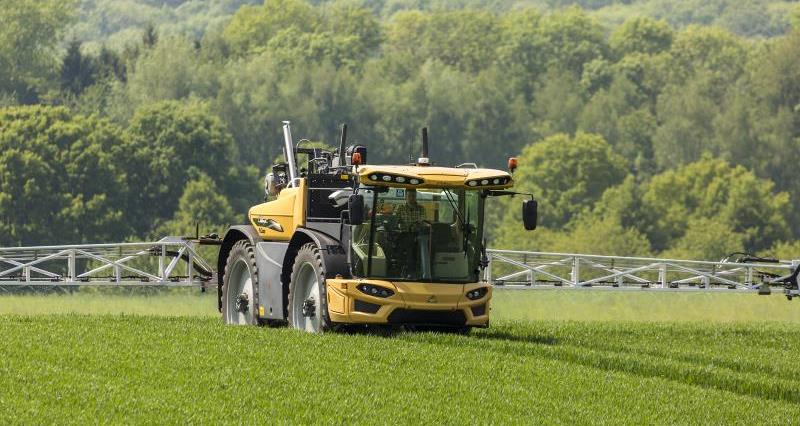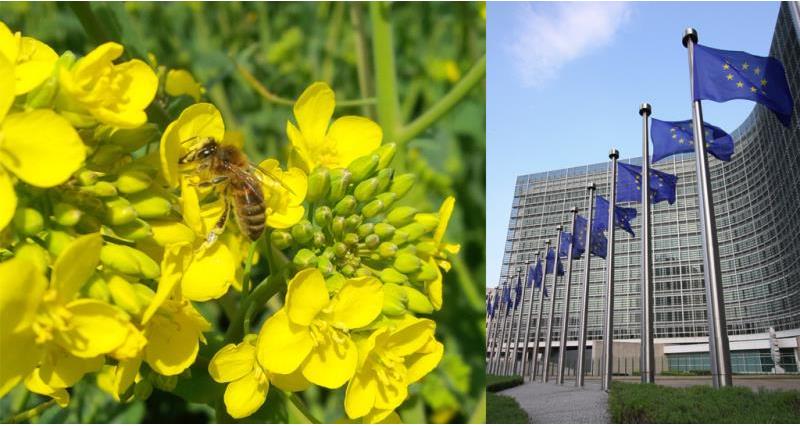When the Standing Committee on Plants, Animals, Food and Feed meets on Friday (27 April) it will discuss European Commission proposals to extend current neonicotinoid restrictions (covering uses on flowering crops, spring-sown cereals and maize) to capture all uses on crops grown outdoors, as a precautionary measure to protect pollinators.
The discussions follow the publication of updated risk assessments by the European Food Safety Authority in February, and last year’s announcement of UK government support for further restrictions.
The NFU is making the case to the UK Government and European Commissioners that the evidence still does not justify blanket restrictions on neonicotinoid use – with no clear evidence they’re causing widespread declines in bee populations, or that bans will deliver measurable benefits for pollinator populations.
In fact, there is evidence that major declines in key pollinator biodiversity actually pre-date the use of neonicotinoids by decades. Last year, the largest ever field study on this issue proved inconclusive. It assessed 84 different factors looking at how bees are impacted by neonicotinoid seed treatments – for 75 of these there was no effect at all, in six cases there was a significant harmful effect, and in three cases neonicotinoid use was associated with significant positive effects on bee health. None of the effects occurred consistently across different countries.

The NFU's #saveourseedtreatments leaflet illustrates the impacts further restrictions would have on the environment and food production
While the NFU continues to make the case for neonicotinoids, it is encouraging members to do the same – to explain to decision makers (MPs, MEPs, UK Government and EU Commissioners) the impact further restrictions would have on food production and the environment on your farm – and challenge them on what assessment they have made of these impacts.
Encouragingly there has been much discussion in the EU about these impacts – recognising the problems a wider ban would create for farmers, particularly in milder climates like the UK, which favour slug and aphid pests of cereal, horticultural and sugar beet crops.
Last month, European Commissioner for Agriculture Phil Hogan said sugar beet farmers should be exempt from an EU-wide ban, stating that ‘the science and all of the studies that have been carried out actually favour a derogation for sugar beet’.
The NFU also continues to make the case that the European Commission should not be taking any decision until the EU General Court ruling is given on the legality of the current restrictions (a ruling due at any time).
The NFU's senior regulatory affairs adviser, Dr Chris Hartfield, said:
"This issue is important to our industry in terms of protecting the ecosystem service of pollination and the availability of pesticides, both of which are vital elements of sustainable food production.
"We are all concerned about the health of bees and other pollinating insects in the UK, but we genuinely believe the Commission is taking the discussions around the use of insecticides in the wrong direction, which will not deliver meaningful or measurable benefits for pollinators.
"Farmers work hard to use pesticides carefully and appropriately to minimise the risks around their use. Under the Voluntary Initiative (VI), the uptake of Integrated Pest Management Plans, now completed by nearly 17,000 farmers managing about 4.4 million hectares of land, shows how farmers are increasingly using alternative crop protection tools.
"Farmers have also planted around 10,000 football pitches worth of flower habitat across the country to support a healthy bee population and give them a good home – all because they recognise the key role they play in producing safe, affordable food."
